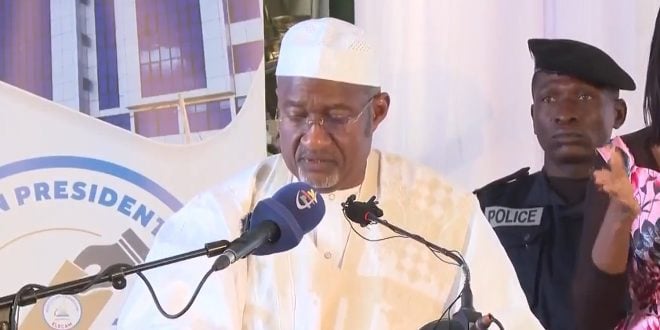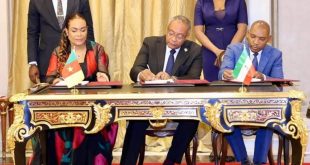CameroonOnline.ORG | In a political development that has sparked nationwide debate, Cameroon’s electoral commission, ELECAM, published on July 26 the provisional list of candidates for the country’s upcoming presidential election, scheduled for October 12, 2025. Thirteen names made the cut. One notably did not: Maurice Kamto, the most prominent opposition figure.
The announcement came through Resolution No. 20/25 of the Electoral Council of ELECAM. Among the 83 candidacy submissions received, only 13 were approved — a shortlist that includes President Paul Biya, who is seeking an eighth term in office, but excludes Maurice Kamto, leader of the Cameroon Renaissance Movement (CRM) and a figure long considered Biya’s main political challenger.
The 13 Approved Candidates:
- Ateki Caxton (PAL)
- Bello Bouba Maïgari (UNDP)
- Paul Biya (RDPC)
- Bouhga Hagbe (MCNC)
- Hilaire Dzipan (MP)
- Issa Tchiroma Bakary (FSNC)
- Hiram Samuel Iyodi (FDC)
- Pierre Kwemo (UMS)
- Cabral Libii (PCRN)
- Serge Espoir Matomba (PURS)
- Akere Muna (Univers)
- Joshua Osih (SDF)
- Tomaïno Ndam Njoya (UDC)
While the candidates represent a range of political parties and ideologies, the absence of Kamto overshadows the entire list. His candidacy had been submitted under the banner of MANIDEM, an apparent strategic alliance, and was expected to be a serious counterweight to Biya’s decades-long rule.
Why Was Kamto Rejected?
ELECAM has not offered a detailed explanation for rejecting Kamto’s candidacy. This opacity has led to widespread speculation and unease. Possible reasons floated include technical administrative errors, legal shortcomings in the file, or a politically motivated decision designed to sideline the opposition. In the absence of clear justification, the move is fueling renewed criticism about the transparency and fairness of Cameroon’s electoral process.
Kamto’s exclusion raises deep concerns about the future of democracy in Cameroon. As a former government minister turned opposition leader, Kamto gained significant national and international attention during the 2018 presidential election, where he claimed victory and challenged the official results. Since then, he has remained a consistent and vocal critic of the Biya administration.
What Happens Next?
According to ELECAM, rejected candidates have 72 hours to appeal to the Constitutional Council. Whether Kamto and his team will file such an appeal remains to be seen, but the coming days will be decisive both for his political future and for the credibility of the electoral process.
As Cameroonians prepare to vote in what could be a turning point for their nation, many are left wondering: Can an election be truly democratic without the main opposition voice in the race?
The unfolding developments suggest that the road to October 12 will not just be about who wins or loses, but about whether the process itself earns the trust of the people.
 CameroonOnline.org Cameroon news, Actualité Camerounaise, live Web TV & Radio, World News and a lot more
CameroonOnline.org Cameroon news, Actualité Camerounaise, live Web TV & Radio, World News and a lot more




